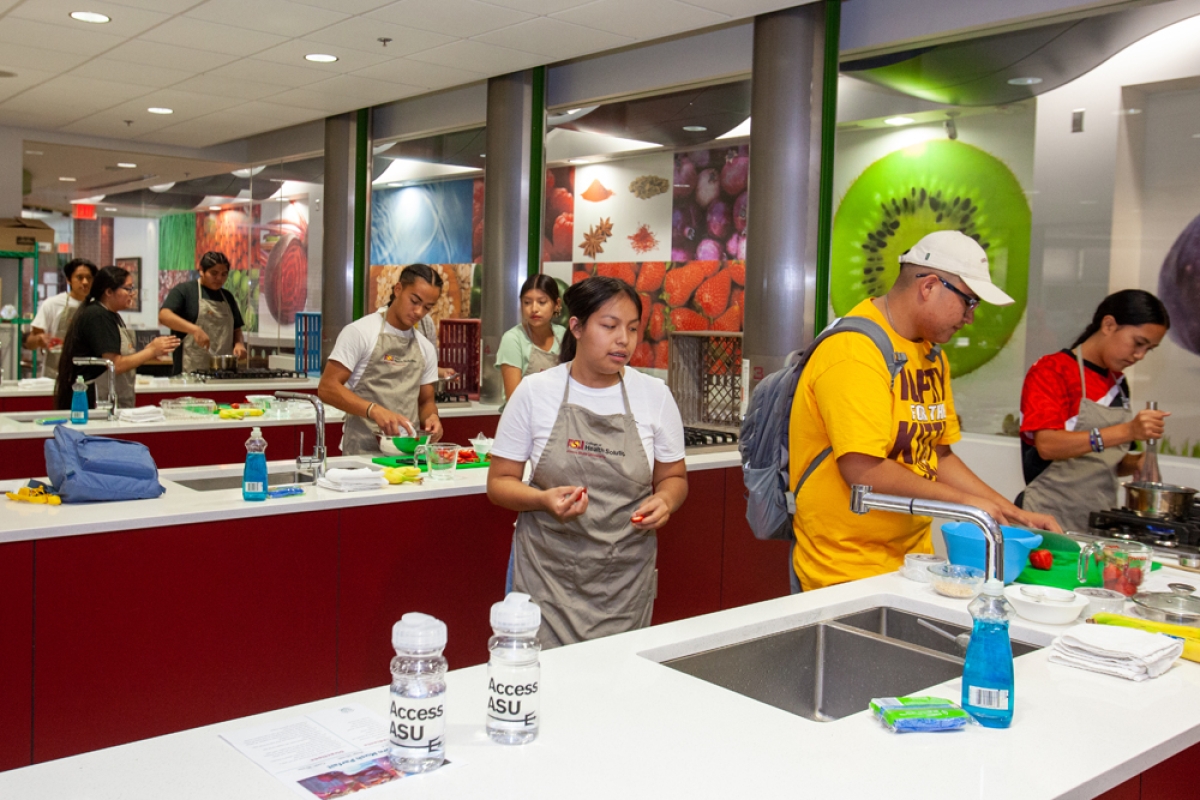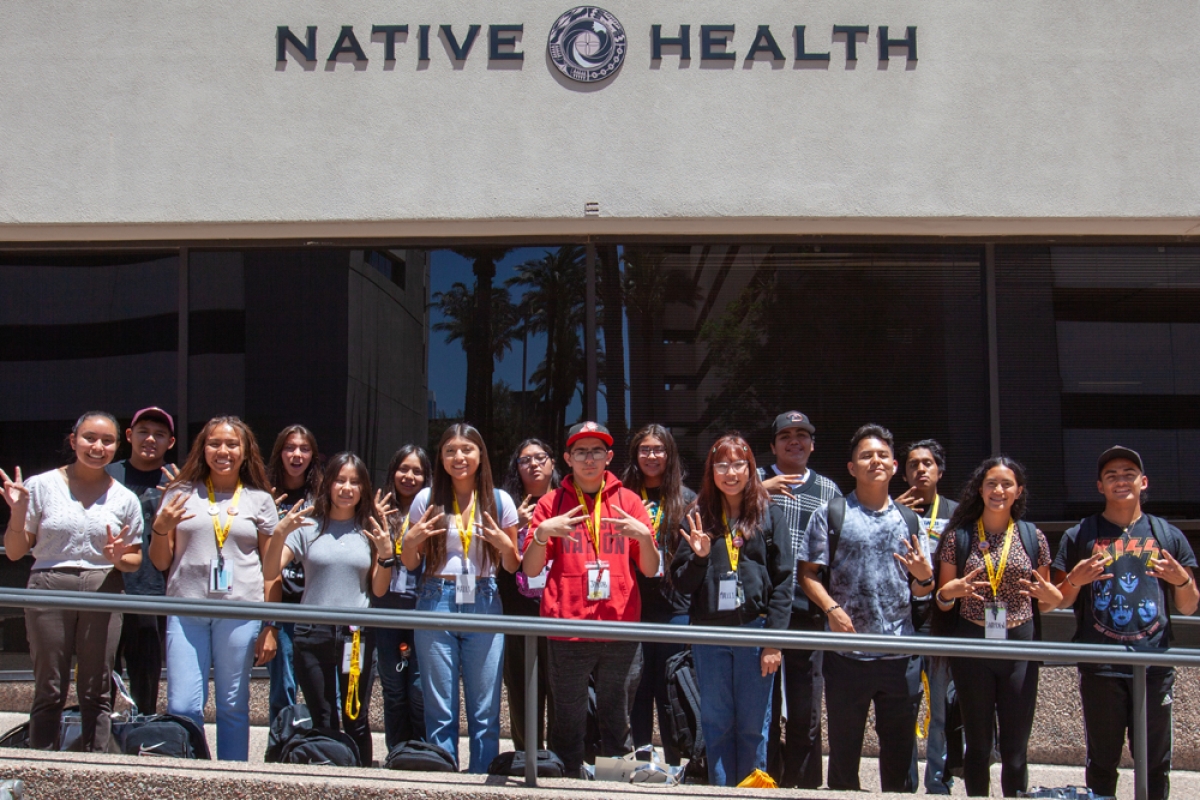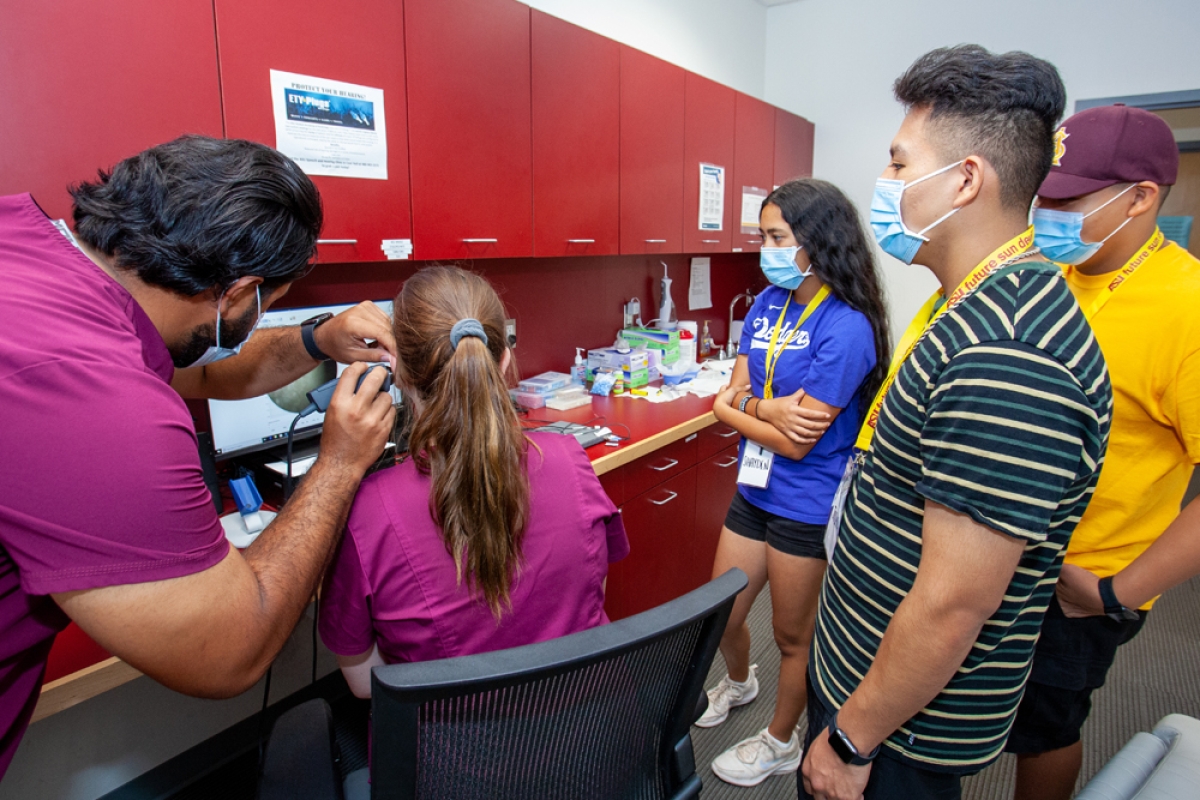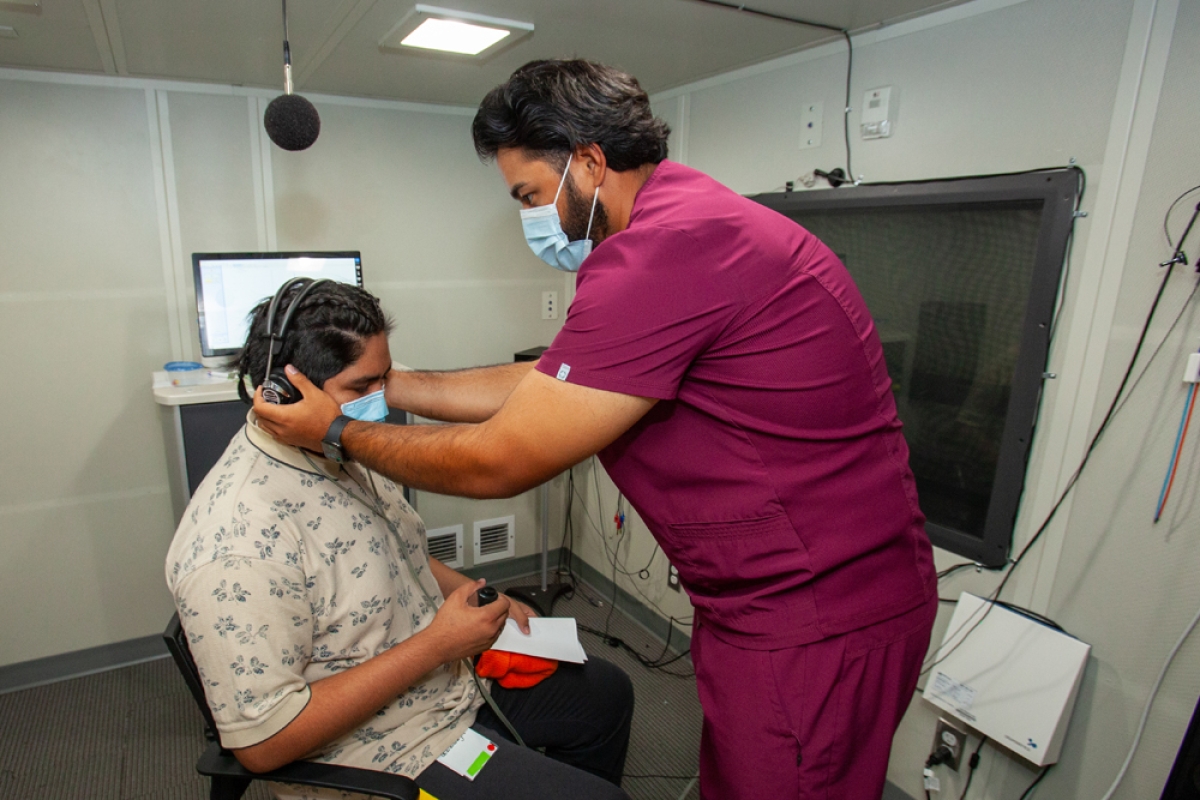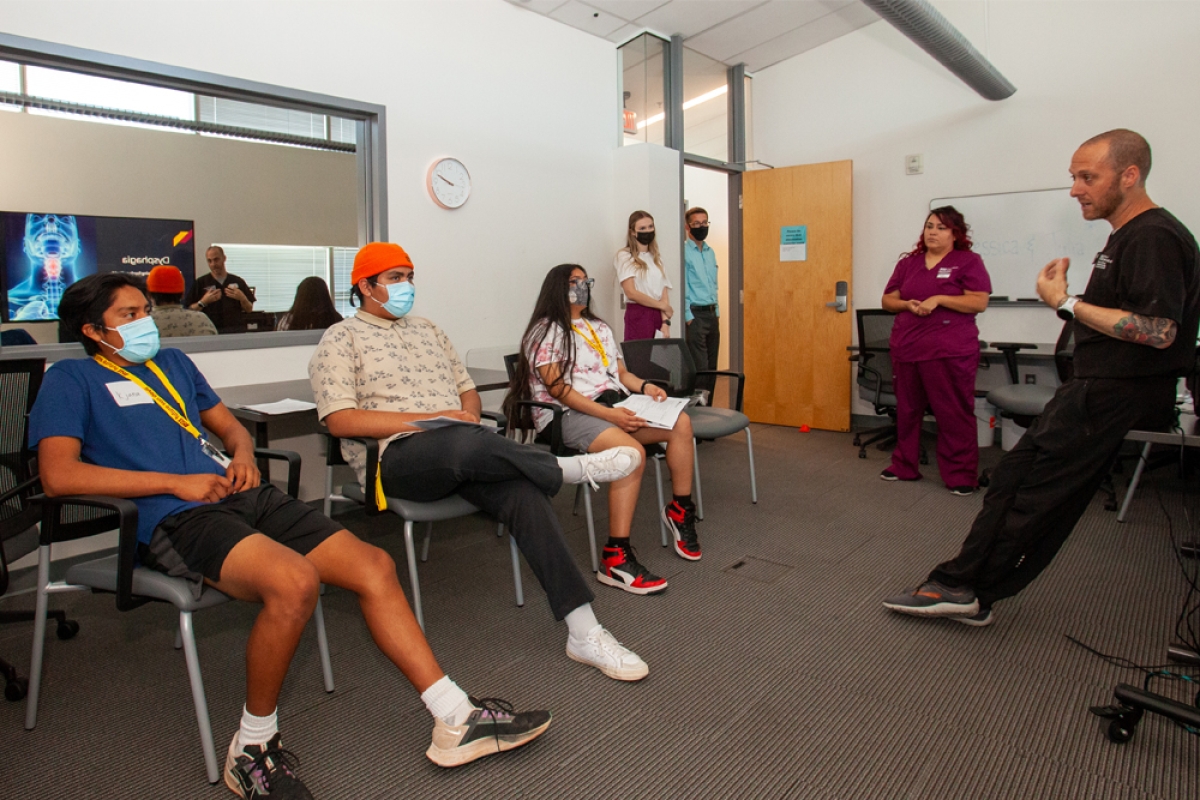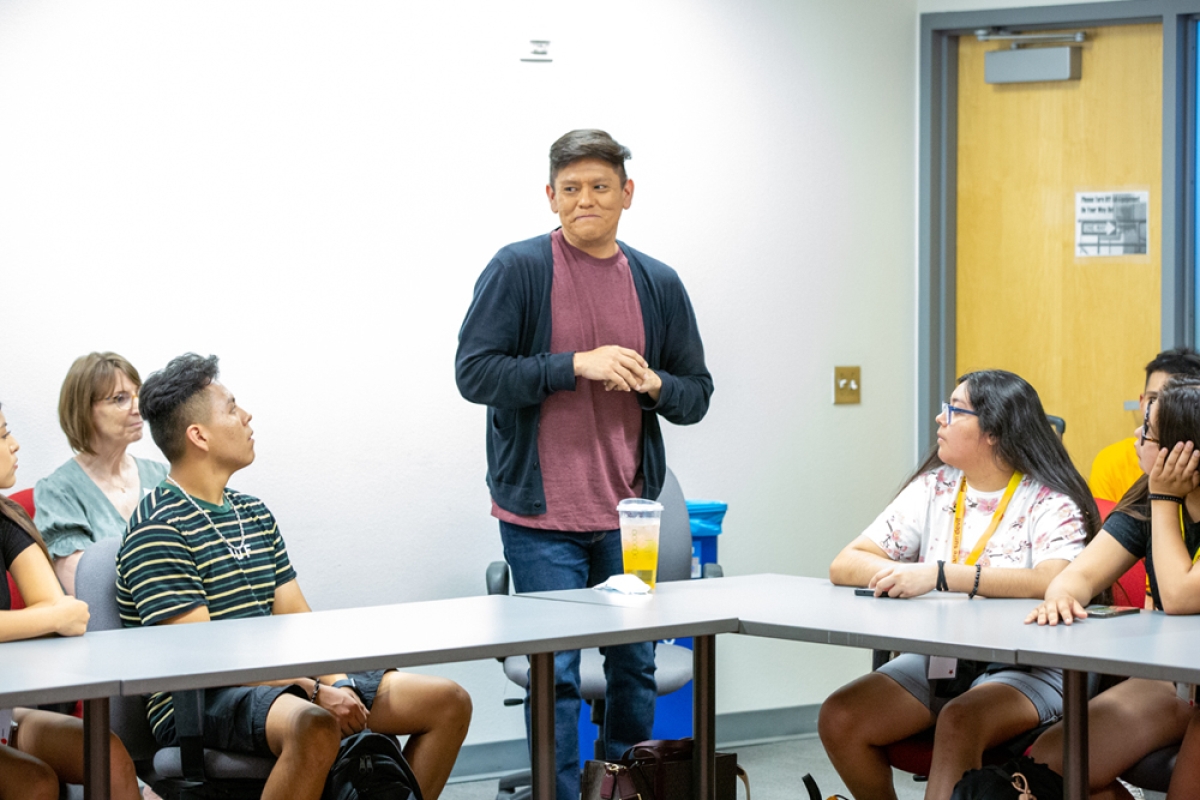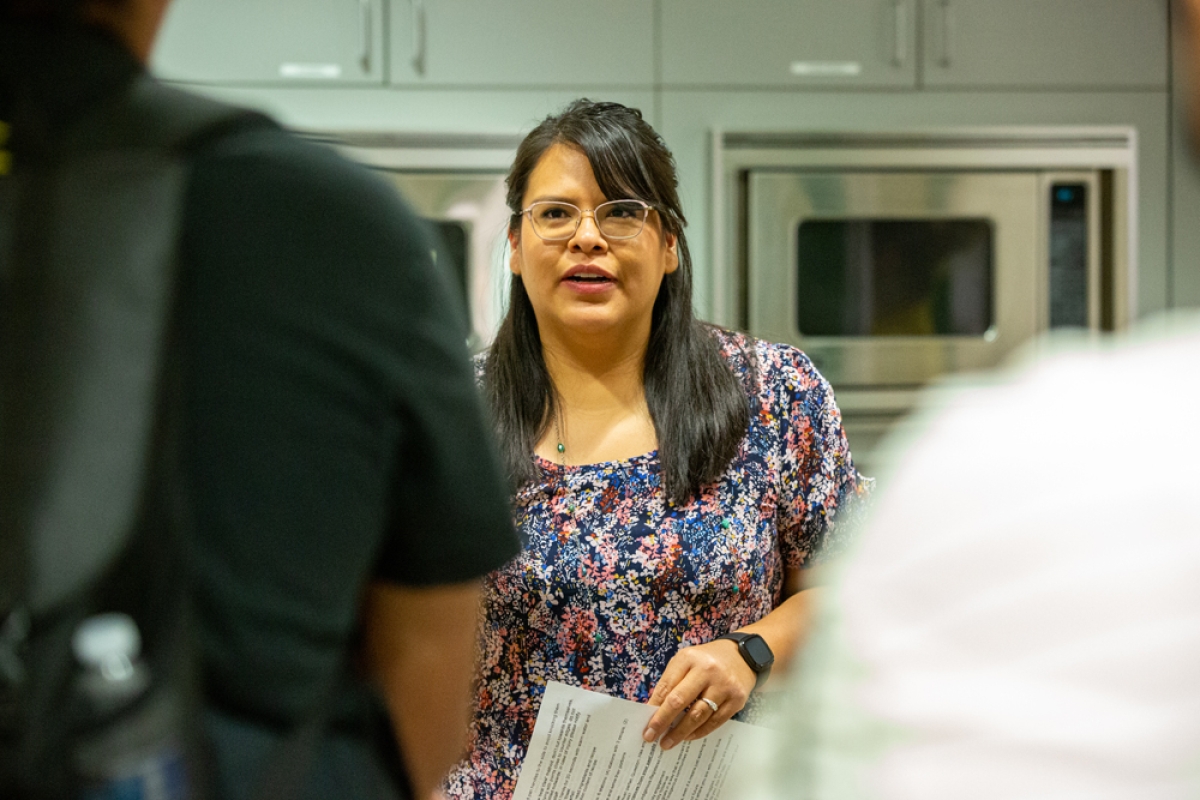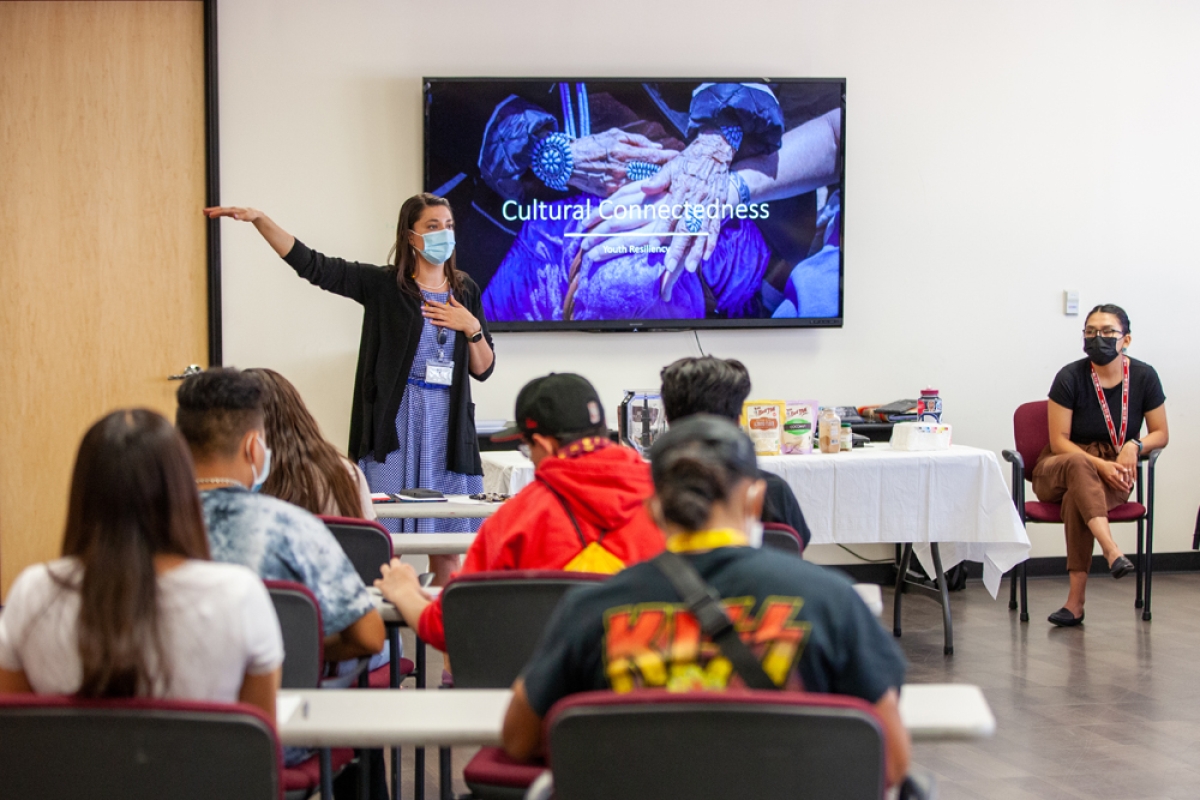ASU summer camp helps Native American high school students explore health careers
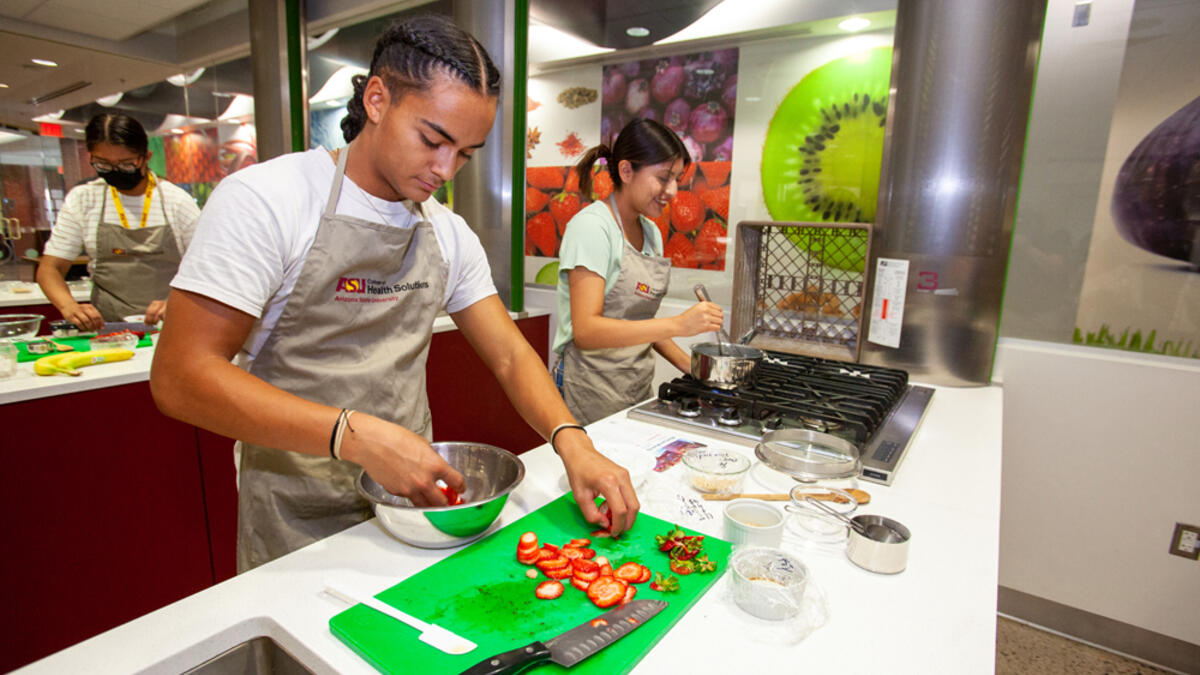
Native American high school students Creon Fulgham (left) and Kaili Batala take part in a cooking demonstration during the College of Health Solutions INSPIRE Summer Camp on June 21. The camp is designed to help expose Native American students to career options and college life at ASU.
Keanu Stevens was eager to show off his new skill of inserting a breathing tube in a mannequin designed for medical professionals to a group of family and new friends.
Stevens, from Sells, Arizona, was part of a group of students who spent a week with ASU College of Health Solutions faculty, staff and alumni while taking part in the INSPIRE Summer Camp, a college readiness program for Native American high school students.
A member of the Tohono O’odham Nation, Stevens said the chance to bond with other students with similar goals and ambitions was meaningful for him.
“It was learning that I am not alone,” he said. “Learning that there are other Natives who want to do some of the things that I want to do was the highlight of the week.”
The students were able to choose among six areas of study at Arizona State University, including health, and spent the week learning about possible degrees or career options in those areas. In addition to health, the students explored arts and design, business, Indigenous leadership, law and policy, and STEM.
They also had an opportunity to take part in one of five cultural activities: drum-making, ribbon skirt bag-making, beading, art and drawing, and traditional/contemporary singing.
At the June 24 closing ceremony, the students were able to show their parents and other family members what they learned during the week.
One of the things students in the health track demonstrated was the use of a mannequin designed to help medical professionals learn how to intubateinsert a breathing tube into a patient. The students, including Stevens, took turns showing off what they learned during the closing ceremonies.
For Stevens, another highlight included the cooking and nutrition demonstrations put on by ASU College of Health Solutions alumna Denee Bex, owner of Tumbleweed Nutrition, who showed the students how to make blue corn mush parfaits using local and traditional Navajo ingredients.
Stevens is interested in a career that involves showing people healthier ways to eat.
“I want to be able to be out in the community giving people dietary advice and showing how our day-to-day cultural foods can be used in healthier ways,” Stevens said. “I want to help people be healthy.”
Bex was happy to hear that the cooking demonstration resonated with students. She said the class was intended to celebrate Indigenous foods and show students that those foods were healthy and could be used in different and creative ways.
She also wanted to encourage students to look at different ways dietitians can contribute to health and health care.
“I wanted to be involved because it's important for the youth to see Indigenous dietitians working to create healthier communities,” Bex said. “I am from the Navajo reservation and I had no idea at their age that being a dietitian was a career option, and it would have helped if I knew earlier that this was a career path. We need more Indigneous dietitians and I wanted to be a role model for the students.”
In addition to the cooking demonstration, students who took part in health solutions activities also took a tour of the ASU Speech and Hearing Clinic and the clinic at Native Health.
To help them continue practicing healthy behaviors beyond camp, the students received backpacks from Native Health’s Youth Resiliency Program, which included school supplies, COVID-19 tests, face coverings and more. They also received pressure cookers, courtesy of a donation from the American Cancer Society, so they could practice some of the cooking skills they learned at home. In addition, the Arizona Alliance for Community Health Centers provided each participant with a yearlong subscription to VirtualJobShadow.com.
Joshua Breger, a clinical assistant professor and speech-language clinic director, who presented to the group with colleagues Dawn Greer, clinical professor, and Kate Helms Tillery, clinical associate professor, said interacting with the students during their visit to the ASU Speech and Hearing Clinic was “amazing.”
“The students were extremely engaged and asked very insightful questions,” Breger said.
Breger said one of the most meaningful portions of the campers’ visit was a discussion with Davis Henderson, who earned a PhD in speech and hearing science in 2017 and is also a member of the Indigenous community.
“His presentation on the importance of Indigenous representation in speech and hearing science was exceptionally poignant and a great way to end our session of the camp,” Breger said. “We are extremely grateful for this opportunity and are already looking forward to next year.”
Kiara Bia, a student from Chinle, Arizona, spent the week learning about various paths she could take to achieve her goal of becoming a physician. Many of the majors offered by the College of Health Solutions are good preparation for students headed to medical school.
“The highlight was meeting with the different professors who were willing to teach us and share their experiences about careers or college,” Bia said. “I want to follow in the footsteps of other people in my family and become a pediatrician.”
Bia said she has siblings who were either doctors or in medical school.
“And my grandpa was a medicine man,” she said.
Jaycob Hogan of Chandler, Arizona, said the tour of the Native Health clinic was a highlight of his week. Hogan also wants to be a physician and said many of the college’s disciplines could help him achieve that goal.
“I liked how (the camp) showed the different directions I could go to get to where I want to be,” Hogan said. “There’s not just one path to get there.”
The overriding theme of the week was to offer the students a chance to picture themselves as college students and get a taste of what that experience could be like. Ultimately, it could also lead them to pursue careers in health or health care.
Nate Wade, executive director of strategic initiatives and innovation and assistant research professor in the College of Health Solutions, organized the health track for the summer camp. Wade said the weeklong health activities were intended to demonstrate Indiginous representation in health while encouraging career exploration and college-going behaviors.
“It is critical to build a representative health workforce that mirrors the patient populations that are being served, and our hope is that this summer camp experience is a step in that direction,” Wade said.
Bex said events such as the summer camp can go a long way toward achieving the goal of helping Native students see themselves as health professionals.
“Most dietitians do not look like me and do not come from communities like me, and I feel it's important for the youth to see health care professionals who reflect our communities,” Bex said. “It makes them think, ‘Well, if she looks like me, then maybe I can do it.’ I think it's important to highlight our stories and communities and celebrate our unique identity instead of shying away from it.”
More Health and medicine

College of Health Solutions alumnus named Military Medic of the Year
By Keri Hensley and Kimberly LinnJonathan Lu has looked out for the health of his fellow military service members his whole…

ASU, Mayo Clinic forge new health innovation program
Arizona State University is on a mission to drive innovations that will help people lead healthier lives and empower health care…

Innovative, fast-moving ventures emerge from Mayo Clinic and ASU summer residency program
By Georgann YaraIn a batting cage transformed into a custom pitching lab, tricked out with the latest in sports technology,…
